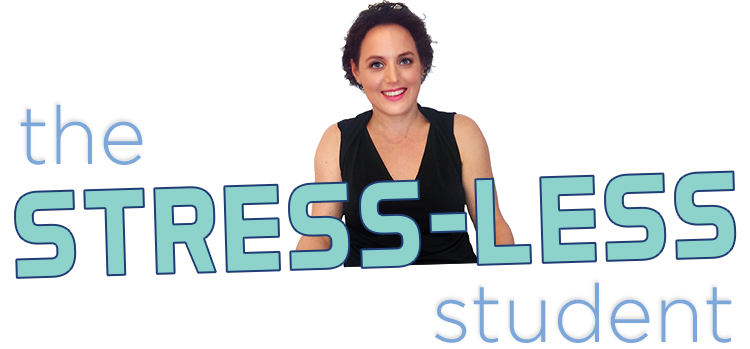Calendaring is definitely important that beyond using google classroom students are using a calendar-type system to track assignments. This gets many groans, of course. The reason that this is so important is that while google classroom tracks when assignments are due, it does not tell you what pieces of that assignment you are going to do when. You may have two big assignments due in a week, plus a couple of extra curricular activities, a family event that you forgot about and for most of us, the priority, hanging out and relaxing with our friends. Writing out (even very generally at first) when you’re going to do what assignments, helps break down the assignment into smaller pieces (reducing the overwhelm and anxiety that many of us feel), increases communication with family members around when there may be activities happening so that homework can’t get done, and allows you to do what you want to do the most. To start calendaring I often instruct students to first mark off all of the fun things they have going on. Then, the times that they won’t be able to do homework (extra-curricular activities, times they are in class, etc). Lastly, we look at the remaining times and have a main time to do homework and a contingency time. I often ask students to break these time slots into time and/or task. If it’s an open-ended writing assignment the task might be “gather quotes for 25 minutes,” or it might be, “write all of my thoughts down for 25 minutes.” If it’s a more discrete task (a worksheet of math problems), it might be “work on the page for 25 minutes,” or “solve these 3 problems.”
If you are a student doing this for the first time (or multiple times) you will feel resistance. We are all used a certain way of doing things and our body internalizes these ways and anything new can feel threatening. Thoughts that I often hear from students are, “But if I write it down and don’t do it, then I feel bad about myself,” or “I’ll never look at my to-do list/calendar.” To the first comment, I say, you are in charge of your calendar and therefore you can change it. I also suggest doing it anyway, because of course, things in life come up and as they do you can move when you might do an assignment. This is a great lesson in adaptability. To the second, (“i’ll never look at my calendar”) I suggest two things: if you are using google calendar, download the calendar onto your phone. Use tasks to write down when you’re going to do what down what assignment and download tasks on your phone. You will get a notification. Second, write down a task that you’ve already completed or know that you do on a regular basis (brushing teeth, etc). Then, make sure you check it off (this gives off an endorphin high). When you check off something you’ve already done, it will remind the brain that you are successful at that task and will want to repeat it (i.e. looking at the calendar and checking things off).
By the way, I know that many students know this and struggle with calendaring. It’s not so easy for many of us. So if you would like some support with this, make a date with me in your calendar (haha), or sign up for a complimentary Destresify Yourself session here.


Recent Comments